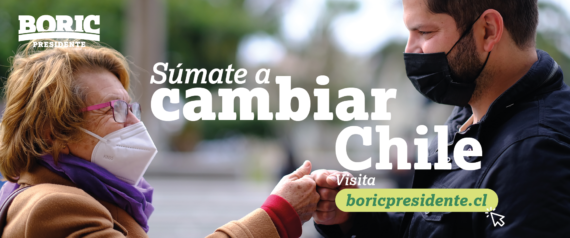
The future of Chile is uncertain after the results of yesterday’s elections. José Antonio Kast, representing the extreme right, obtained 27.92% of the vote and Gabriel Boric, representing the Frente Amplio, supported by the Communist Party, obtained 25.80%. Both will face a second round on 19 December and will try to reach an agreement with the other candidates who did not manage to qualify for the second round and to mobilise those who did not vote.
Yesterday, only 47.34% of voters cast their ballots in a voluntary voting system. The candidate of the social democratic parties, PS Chile and the Party for Democracy (PPD), Yasna Provoste of the Christian Democratic Party, obtained only 11.62%. This is the first time that the centre-left coalition that has governed the country for 30 years will not be represented in the upcoming December elections. In the face of the uncertainty in which we live today, both the Socialist Party and the Party for Democracy have called for unconditional support for Gabriel Boric. In the meantime, the Christian Democratic Party will decide on its support after a national meeting in the next few days, and will probably set some conditions for its support.
There are several reasons for this result, but it seems that the lack of trust in political parties in these times of multiple crises has been shaken, as well as an excessively empty rhetoric and lack of proposals, unable to address the concerns and anxieties of a population that lives with crime, drug trafficking, loss of housing and other fears of downgrading. Kast, on the other hand, was able to address these concerns with his rhetoric on peace, security, fighting crime, drug trafficking and migration. In addition, Kast has been able to promise security to small and medium-sized independents and entrepreneurs so that they can continue to make a living from their businesses, threatening those who would loot their shops or small businesses with the full force of the law.
Chilean progressives seem to have trauma from the past in their relationship with violence and crime, the 17 years of dictatorship are so permeated and it seems to be very difficult to talk about sanctions, order and public violence. It is a question of learning to call violence and terrorism by their real name and proposing concrete measures to deal with the problem of vandalism, drug trafficking, uncontrolled migration in the north of our country and the security problems in La Araucania, with the burning of forestry vehicles, the burning of private houses and the murder of young Mapuche people, as a result of the disproportionate militarisation of the territory proposed by this government and supported by the majority of the Congress of the Republic.
There are only a few days left to try to get the message across to the voters who did not go to the polls, but this work must be done without euphemisms, in the hope that it will be possible for progressives and democrats to address and take charge of the problems that afflict the people. Today, it is necessary to communicate in a simple way so that the message is heard and, above all, to make every effort to reach out to all democrats and progressives, united under a common goal and without blaming the past. Women, students, cultural actors, trade unions, various social and human rights organisations must be mobilised, there is no time to lose in order to preserve all the advances made in democracy over the last 30 years. For some it may not be much, but for the vast majority in Chile it has been a light after a dark night that lasted 17 years.